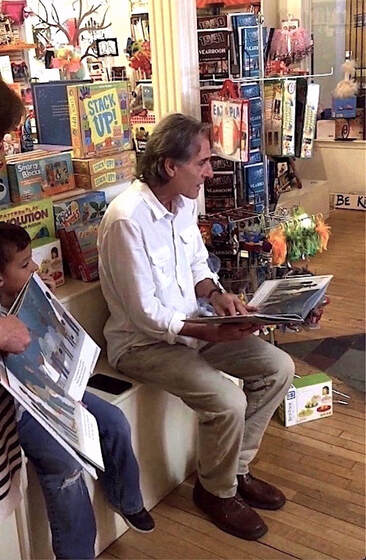
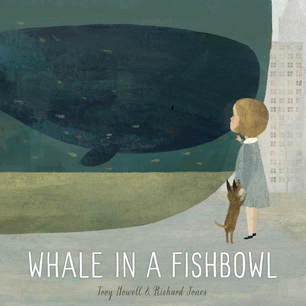
For my final entry in this series on Whale in a Fishbowl, the picture book story written by me and illustrated by Richard Jones, I’ll go back to the very thing that started it. It’s not glamorous at all, and will be more about the writing life than about the book.
I was in need of a literary agent. As my virtual stack of stories and novels ascended, due to my earnest output as a writer, something had to move into the publishing stream or my efforts would be worth little. I write so I can share simple joys with others, but stacks of bills ascended, too. Having an agent is a must if you want to get into traditional publishing. In addition to representing the author and negotiating contracts, agents serve as filters for quality and professionalism, weeding out a vast number of submissions that editors do not have time or staff for. An editor will receive a submission from an agent but seldom from a non-agented writer.
It was a tweet that started it. No heavenly choirs or ocean waves. A tweet. Coming from an agent I’d been following on Twitter. Besides posting on a site specifically for their wish lists, many agents use Twitter to express their desires to see a particular subject explored in a book. So when this agent — who represents all that I do, from picture book texts to middle grade and young adult novels — tweeted a wish to see stories about whales, I said, “OK, I’ll write a whale story. It will be the best I can do, and I’ll send it.”
I wrote a story about a captive whale who doesn’t know she’s captive and yearns for something yet unknown to her. I wrote it in a single sitting, which is highly untypical of the usual process (there’s one picture book manuscript I’ve worked on over several years and still do not have right). That was Monday, December 7, 2015. Only one person saw the story, someone I have trusted over time to be honest with me about my work. She cried when she read it, and that was validation. By Wednesday I had a finished version, and I named my whale Wednesday because she was smack in the middle of everything: traffic, pedestrians, buildings, pollution. Also, a whale named Wednesday sounded right. I was happy: I believed it was one of the best stories I’d written. I broke one of my fundamental rules (please see Everyone wants to write a children's book.) and decided not to wait until my next critique group session, which was a month away, and submitted it to this agent, anticipating a fair, if not good, response.
I waited. A month. I gave the agent an email nudge, offering more of my stories and asking whether she’d had a chance to read Whale. Not a word.
Now I really needed an agent — they can do wonders with contracts. Though I was a step ahead by having an editor welcome my work, that was no guarantee for future submissions. A publishing offer can be used to convince an agent you’re worth representation. Their job, after all, is to sell your stuff, and I had done that myself. After taking the advice of one of my writing group friends (visit Elle Blair Writes), I now titled my agent queries with “PB query with offer from Schwartz & Wade.” That’s industry talk for “I’m asking you to consider me because my picture book has an offer of publication from a major publisher.” Unless they say otherwise regarding submission requirements, you must ask before making a submission. I received some immediate responses with this approach — in contrast to waiting weeks, months, or forever — but no offers of representation. I was reluctant to sign the publisher’s contract without an agent, and believed I should keep querying using this approach. I got a few more interests, but still no agent offers. As the weeks passed I thought of a writer friend who described the process and uncertainty as excruciating. Excruciating it is. Two months went by. I shared my dilemma with my critique group members, and Lana Krumwiede (visit Lana) believed I deserved better. She talked with her agent, who then gave me a call, and after an interview, offered representation. I accepted. My new agent got on the Whale contract immediately, and I was content with the terms. That was Spring 2016. (Unfortunately for me, eleven months later this agent took a job offer elsewhere and quit her agenting work.)
One of the morals to this story is that a book may be initiated by something as mundane as a tweet.
The source, however, is a different thing altogether. That comes from a place deep down. I define idea as part logic, part thunder, part butterfly wing — a blending of experience, knowledge (and hopefully truth) that comes on suddenly and bright and strong ... and yet can fade if not nurtured, and given a chance at life. The tale of Wednesday and her predicament lay hidden inside, and may have never surfaced — not in this form — without that prompting tweet.
So, two and a half years after I wrote Whale in a Fishbowl (the waiting is also excruciating, but worth it), the book is available online and will be on shelves May 22. To date it has garnered starred reviews from Booklist, Kirkus, Publishers Weekly, and Bulletin. My hope is that it will be read and viewed by many, children and adults alike, in years to come. For me, it introduces a truth and reality we each need to consider at various points in our lives. But mostly, it's to be enjoyed.
After Wednesday? What I do when any work leaves my hands is immediately return to writing. I must — it’s like breathing. I have several stories that my former agent was ready to submit before her departure, as well as three children’s novels, one that I'm currently I’m revising.
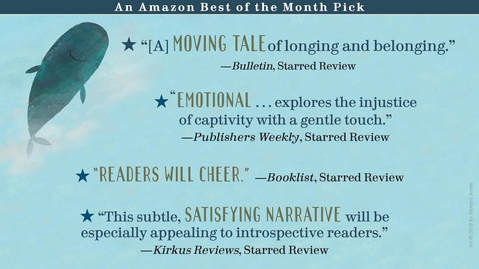
Previous Whale in a Fishbowl posts:
"Bloom"
Paisley Patterns
Piper and Digger
click on the whale for the Amazon page
to find an indie bookseller near you, click here
For those of you who are ready to submit to literary agents, here are some links.
Publishers Marketplace
Manuscript Wish List
QueryTracker
Whale in a Fishbowl art © 2018 by Richard Jones
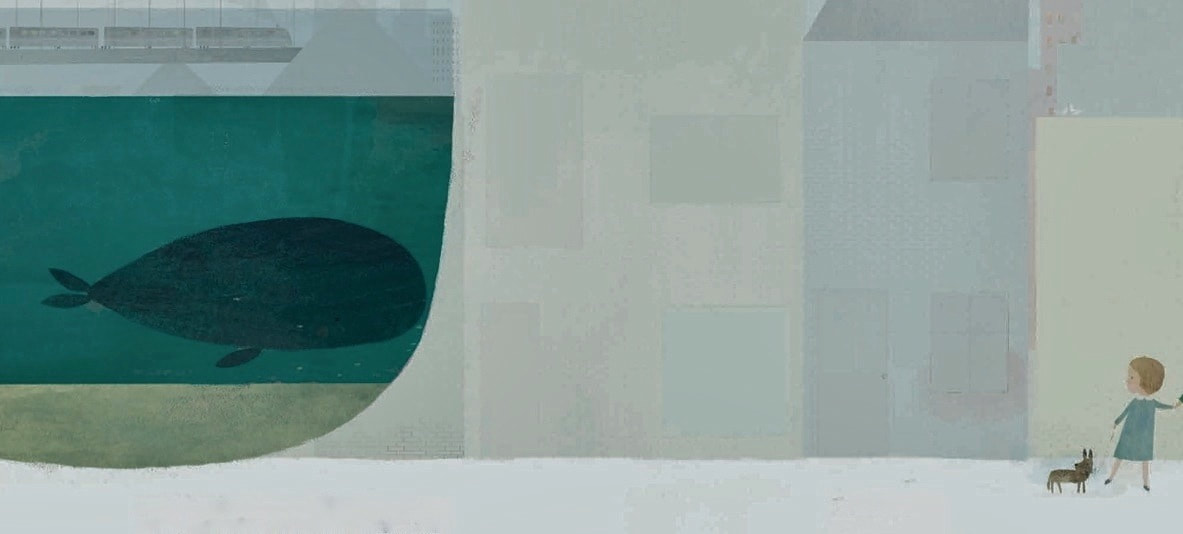
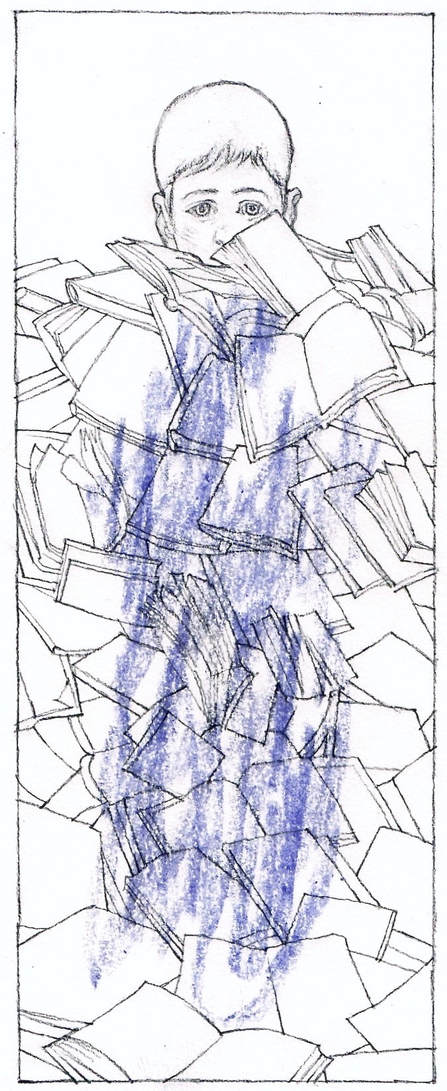

 RSS Feed
RSS Feed